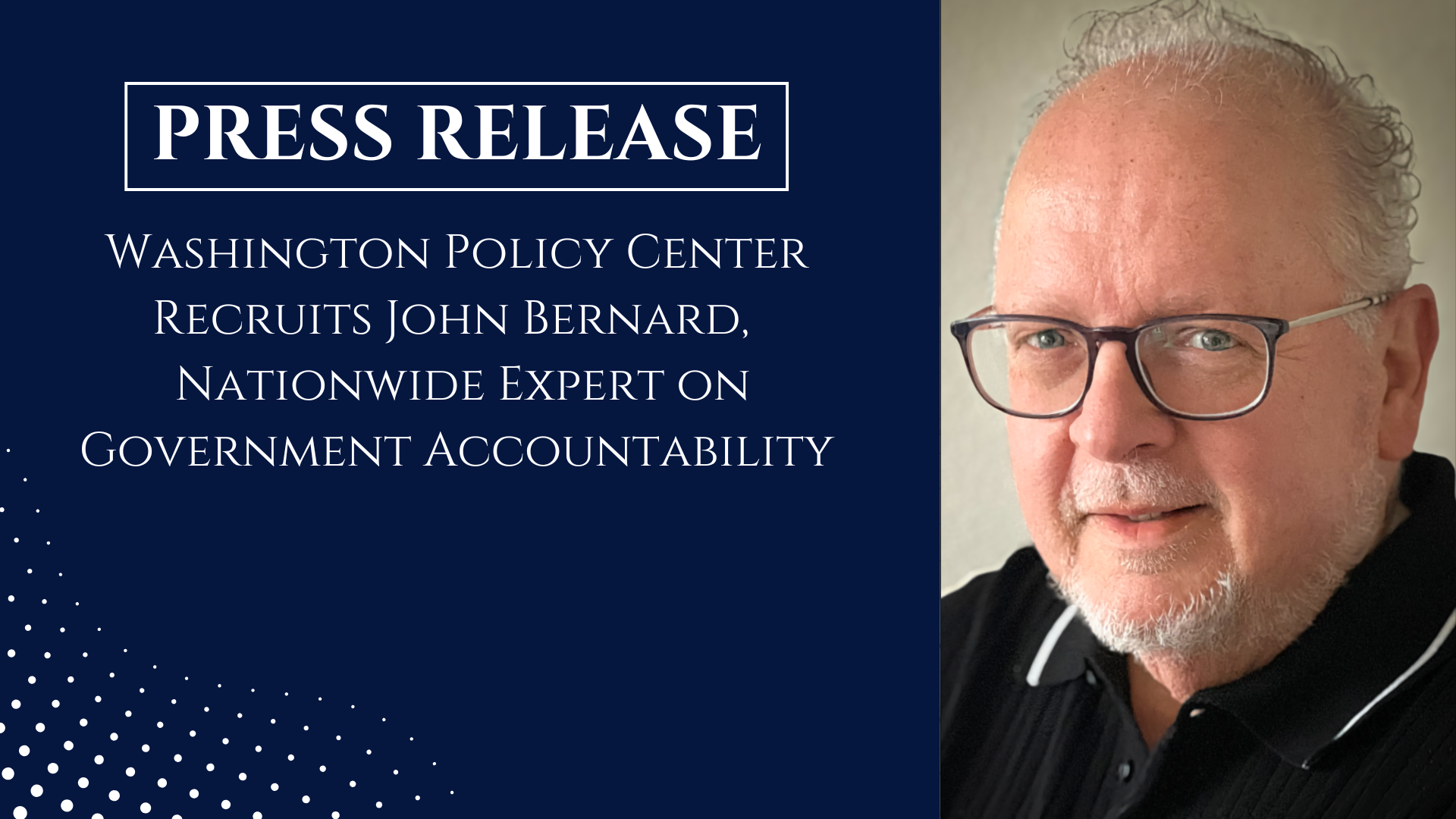Related Articles
Key Takeaways:
- The WA Cares program is insolvent before it begins, facing a $15 billion shortfall.
- Between 2022-2053, workers will pay more than $30 billion for the state to realize net savings of just over $1.2 billion, assuming administrative costs don't increase.
- The regressive tax in the law means some low-income workers will be forced to hand over a portion of their income to benefit others with higher incomes.
- It is likely the Employment Security Department will grant a monopoly to Service Employees International Union 775 (among the largest campaign donors in the state) to provide required training of family caregivers who could be obligated to pay them dues.
- The lifetime benefit of $36,500 is highly unlikely to provide for most people's needs, making the state's promises of financial security and "peace of mind" both false and dangerous.
- There is already legislative discussion that the 58-cent tax will need to increase or the benefit amount of $36,500 decrease to keep the program viable.
- At its starting tax rate (already expected to increase), a worker earning $25,000 will pay $145 each year, a worker making $50,000 will pay $290, those making $100,000 will pay $580 and so on.
- Private long-term-care plans typically start paying out when an elderly person needs help with two daily-life activities, while the state program will require a person to need help with at least three.
FOR IMMEDIATE RELEASE:
JULY 27, 2022
MEDIA CONTACT: DAVID BOZE
WPC Communications Director, call or text 425-248-1408
SEATTLE – With Washington state’s delayed payroll tax set to begin collection in one year this month, Washington Policy Center (WPC) has released a new analysis of WA Cares, the state’s long-term care program the new tax was created to fund. The new report shows a program already in crisis, with a tax increase or benefit cut needed to keep the program afloat while benefits already fall far short of providing the “peace of mind” promised.
“Advocates of WA Cares need to start caring about the financial deficiencies inherent in this program, the unfair burden it puts on workers, and the deceitful marketing they’re using to promote it,” urged Elizabeth Hovde, the author of the new study. “Long-term-care planning is obviously a serious challenge, but equally obvious is that WA Cares is not the solution.”
Recent legislative efforts have ostensibly aimed at fixing the unfair taxation for some of the workers unlikely to see a benefit, including military spouses, some disabled veterans, temporary workers and workers living out of state. Yet these efforts have been structured to require individuals to apply for an exemption, opting them into the tax instead of simply excluding them from the start.
The WA Cares program caused a tsunami of disruption in the private long-term care insurance market with providers simply leaving the Washington market until after the state’s opt-out deadline. That left those seeking a private plan to avoid the WA Cares program without an option. Despite the turmoil, nearly 500,000 Washington workers having filed for exclusion -- more than 10 percent of those with recent employment.
Marketing materials and spokespeople for WA Cares assure the public this program will meet an individual’s possible long-term care needs, allow people to keep their savings, and provide peace of mind as we age. Yet in most cases, people will still need to spend their savings and utilize family assistance when it is available. Further, unlike private insurance plans, the program does nothing for elderly people needing help with fewer than three daily life activities or who move out of state.
“The ‘peace of mind’ messaging from the state undermines the one silver lining of WA Cares, which is that its payroll tax got people thinking about their long term care needs,” explained Hovde. “Claiming this mandatory tax solves the issue is exacerbating the very problem it was supposedly created to solve.”
The study recommends repeal of WA Cares and regulations that make long-term care insurance plans sold in Washington more expensive. In addition, it recommends Medicaid be reformed and protected as a safety net, and that the state close paths that allow abuse of the system.
###
.
Study author Elizabeth Hovde is available for interviews. You can call or text David Boze, WPC Communications Director, at the number above, or you can contact Elizabeth directly at Ehovde@washingtonpolicy.org or 360-241-4653.




